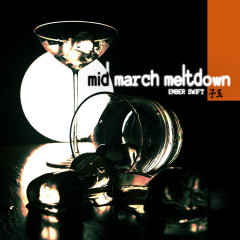Alien Green Beans
Fumbling in a second language (or third, in my case) often has its moments of hilarity. I wish I could have written them all down. By now, I’m more than functional in Mandarin and the hilariousness has calmed down, but back in the first couple of years of being in China, I must have had cause to laugh at language foibles at least once a day. Only at that time, I was probably too busy pulling my hair out to laugh!
I’m also in a relationship with a person who only speaks one language. He can stumble precariously in extremely simple English, but he’s admittedly not a language person. He has no real aim for fluency in English or any other language besides Mandarin (sadly, as I’d love him to care about my language as much as I do his!) and so he doesn’t relate to the goal of language acquisition—the struggle or the strain.
In the first phase of living together, I sometimes had moments of complete brain meltdown. If a song was playing in English, for instance, and my brain was just a little tired, sometimes while he was talking at me it sounded like we were underwater with his every word was garbled. But in some strange inversion of the audio reality, the English lyrics that were supposed to be in the background would rise in volume and seem crystal clear in contrast. The perspective shift made me feel woozy.
Once, in a fit of full-on frustration, I yelled at him in English, “I can’t speak Chinese! Stop talking to me in Chinese! My brain is tired. Speak English or just leave me alone!” and then, maturely, I put both hands over my ears and closed my eyes to block out reality. When I heard him wordlessly leave the room, I opened my eyes and continued what I had been doing, which was sweeping.
Five minutes later, he returned to the room with a mischievous grin and said in English, “How do you do? I am fine, thank you. And you?” Then, when I looked at him strangely, he continued with, “Ahm from Chah-na. You from Ca-nah-dah. Dees book,” and he pointed to the bookshelf and then searched the room for other items he knew in English and said, “gheetah, ah-tah, ka-tah,” and by then I was starting to giggle.
(Quick translation: “I’m from China. You from Canada. This book. Guitar. Art, Cat.”)
And then he felt encouraged by my giggles, pointed to me and said, “pretty girl,” pronouncing the “t’s” crisply and clearly and softening the “r” in girl like a fine English gentleman. (It figures that he has perfected that one!)
I was laughing by then and shaking the broom at him like a deranged witch, shooing him and his seriously sad English out of the room.
Another time, he asked me to get vegetables so that he could make dinner (a rare treat.) If there’s one thing I’ve learned about Guo Jian, it’s that he’s not domestic. If he cooks, he prefers a sous-chef that he can order around so he doesn’t have to do all the work. He sent me a list over text and I read it, translated a few vegetable names I wasn’t sure of, and then headed to the market.
In Canada, “green beans” are basically string beans. So, when I read “绿豆 lüdou,” which is literally the character for the colour green paired with the character for bean, I bought lovely, fat green beans and looked forward to eating them.
When I received his next set of instructions (orders?), I was perplexed and confused. This time, he phoned me and it was verbal, which was probably his first mistake. He told me to put the “绿豆 lüdou” into the “保温 baowen” (or thermos) “thingie” and fill it with hot water. At the time, I was still learning my kitchenware vocabulary and the word he used for the “thingie” wasn’t one that I knew or remembered and so I just replaced it in my head with “thingie,” knowing it was a word for a container of some sort. By process of elimination, I knew the word thermos and I knew we had one, so I figured I didn’t need to know what “thingie” really was. And I asked him to repeat his instructions twice too. The second time it was no clearer or logical to me than the first.
When I got home, I put the bag of beans on the counter, pulled out the drink thermos and thought, “Really? He wants me to put the beans in the thermos and add hot water?”
Suspend disbelief: this is the rule of navigating a new culture. Otherwise, you are constantly raising your eyebrows and questioning what other people think is normal, which just makes you obnoxious and foreign.
I sighed and placed my disbelief on suspension. I cleaned the beans and then stuffed them into the drink thermos, boiled some water, filled the thermos with the hot water (and there wasn’t much room, so I didn’t need much!) and then put the lid on it.
When Guo Jian got home, he asked after the 绿豆 lüdou in the “thermos <thingie>” and I pointed to the thermos on the counter. He looked at me like I was an alien. Then, he opened the thermos, saw the green beans stuffed so tightly in there that there was hardly any water, and turned back to look at me again like I was an alien who had just sprouted a new alien out of my head right there in the kitchen.
“What is this?” he asked incredulously. “I said 绿豆 lüdou!”
“Those are green beans!”
“No, these are 云豆 yundou! I wanted you to start the 粥 zhou!” (or congee) and then he pointed to the inadequate amount of mung beans that we had in our glass canister and said, “Ember, look, these are 绿豆 lüdou! I needed you to buy more!”
I felt very silly then, but not quite as silly as I felt when he then pointed to the thermal pot with a lid that holds heated foods and explained that this was the “thingie” that I didn’t know about. Little did I know that “thermal” or “保温 baowen” is an adjective (not a noun) that goes before several pieces of kitchenware that are all designed to keep the heat in.
At first, because he is totally unaware of my English brain, he didn’t find this amusing. He was frustrated with my ridiculous lack of comprehension, or so it seemed by his attitude as he poured out the water from the beverage thermos with an exaggerated sigh and then began to fish out the green “string” beans with a chopstick and shake them out of the thermos into a bowl, a task that took a few minutes!
I stood there, at first feeling ridiculous, and then I said, “If you spoke a little English, you’d realize that green beans are these kinds of beans in English and that we only really have beverage thermoses, not thermoses of all shapes and sizes for different uses.” Unfortunately, in my broken Chinese, it came out like this: “In English, green coloured beans are these beans and thermos thingies are only these thermoses.”
Then he turned back to look at this alien who sprouted another alien and then we locked eyes and both burst into laughter. After all, I am an alien in his world…
For those of you who are curious, he had basically wanted me to put the mung beans into hot water to speed up the process of making 粥 zhou, or congee, which is something that we eat with every meal as a grain or staple food. Sometimes there’s barley or millet or rice or sesame seeds in it, and even sometimes nuts and fruit or chunks of pumpkin, but it’s generally not spiced or sweetened and simply acts as a palate cleanser and/or a partial beverage with every meal. Foreigners think of it as a tasteless, watery porridge but I’ve come to love it and miss it when I’m not in China.
That was four years ago now.
Guo Jian recently went to New Zealand with his band and came back with some new English words under his belt. He seems to learn English under forced conditions, like touring in an English-speaking country! Hilarious to me is that he gets “instrument” and “interesting” mixed up. Now he’ll sometimes say, “That’s very instrument” when he means “interesting” or say, “I also play a Chinese interesting, the 古琴 guqin” when he means “instrument.”
When he does this, I laugh and correct him.
And sometimes I remind him about those green beans.








